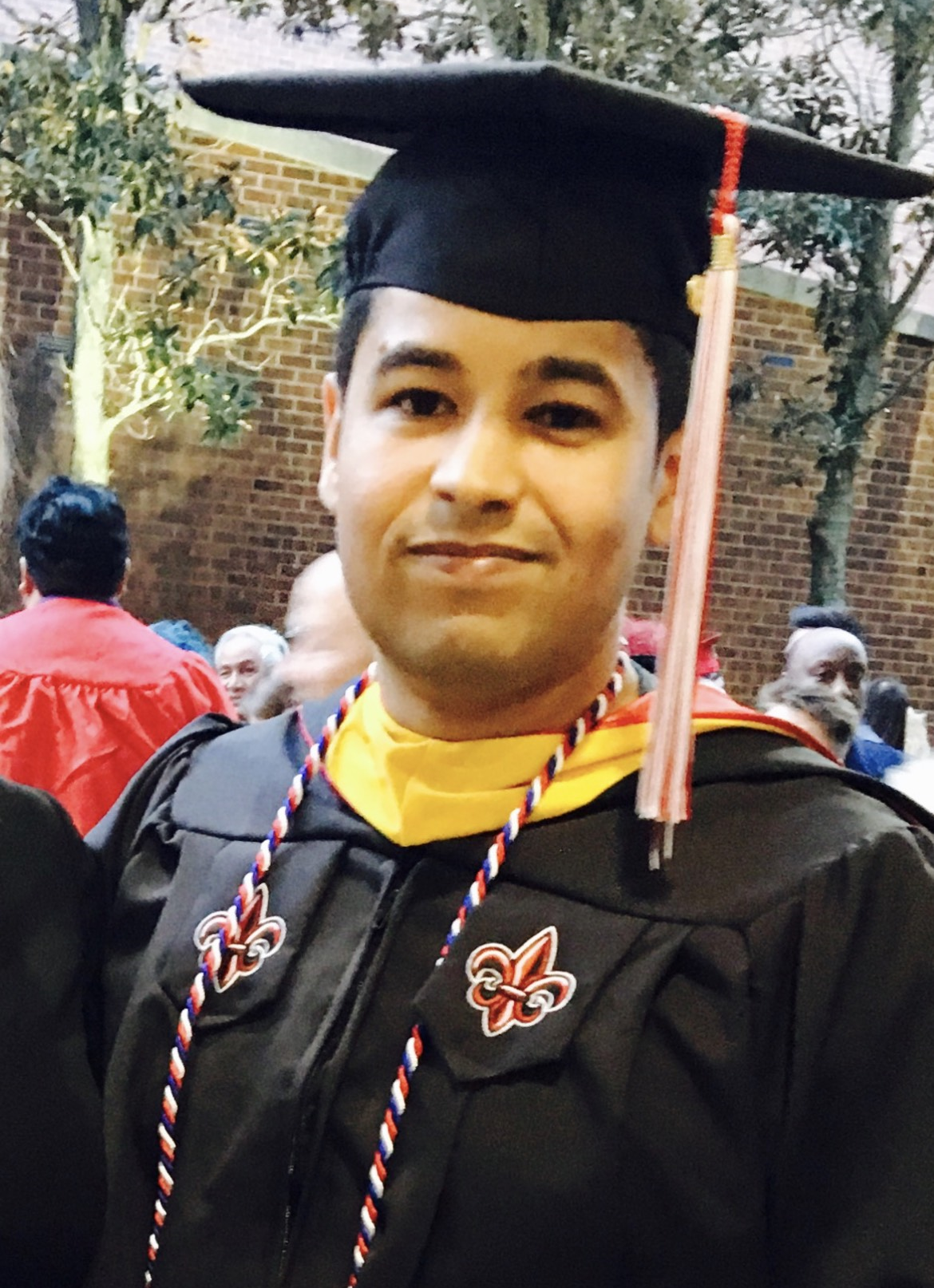Around a decade ago, wheels began turning at the University of Louisiana at Lafayette to develop undergraduate and graduate informatics programs to better prepare graduates for the future of business and technology. The first undergraduate class earned their degrees in 2014 and in 2018 the first graduate students were able to enroll.
Among the first to enroll and graduate with an M.S. in Informatics were Arthur Almazan and Lisa Olinger, who were able to lean into their strengths and interests as students and discover what roles, responsibilities, and specialties suit them best.
Meet Arthur
He was always interested in technology and computing – from hacking phone games as a kid to working in information systems for the U.S. Air Force – but he knew writing code wasn’t his passion. 
After serving in the U.S. Air Force, Almazan was ready for college. He came back to his hometown of Lafayette to use his G.I. bill and expand his computing talents.
“I didn't want to be a programmer, but I wanted to stay in that paradigm,” says Almazan.
The informatics curriculum, Almazan says, puts a premium on mastering data — “whether that’s analytics, whether it's large data, whether it's finding trends in that data, anything revolving around information about information.” But Almazan says his coursework changed his perspective in other ways, as well.
“We worked on enterprise architecture, and it was neat because I've always been a cog in the machine, never so much planning how an organization would run,” Almazan says. “Getting that top-down view helped me better understand some of the organizations I've been a part of.”
Dr. Michael Totaro, graduate coordinator for the Master of Informatics program, says communications underlie much of the curriculum because “engaging in conversations with others outside of our own sort of technical domain” is critical.
As a professional in systems engineering, Almazan has found that’s true.
“Part of informatics is being the liaison between the corporate side and the technical side,” says Almazan.
An attribute that drew Almazan to this master’s program is what he calls a “holistic approach” to computing which explores the broad and very specialized moving parts an organization needs to function.
“This program emphasized understanding enterprise resource planning and the physical hardware that supports these platforms,” he says. “This approach factors into what I took with me into the workforce, a strong systematic understanding of the resources I use, and the way information flows between them.”
That comprehensive understanding of system structure has served him in his current role and will help in the roles he aspires to next.
Almazan plans to leverage his knowledge of organizational structure and function into a career in national or international cybersecurity.
Meet Lisa
Lisa Olinger, originally from Plaisance, Louisiana, is now a Systems Analyst assigned to the Undergraduate Admissions office here at UL Lafayette.

As an undergrad in the B.I. Moody III College of Business Administration, Olinger knew she wanted to pursue a master’s degree but hadn’t committed to a discipline. When she heard Dr. Totaro speak on the School of Computing and Informatics plans for the M.S. in Informatics, she knew that was what she wanted from graduate school.
“Dr. Totaro explained to us what the informatics master’s program would eventually become, and I knew that was something I wanted to do,” she says.
Much like Almazan, Olinger was impressed by the scope of the curriculum.
When asked how to define informatics, she says it’s “the overall study of interdisciplinary enterprise computing. It’s a little of this, a little of that; I think you can pick and choose which skills fit your goals best.”
That customization has served Olinger well in her previous role as Desktop Services Manager for UL Lafayette. Olinger focused her graduate capstone project on IT leadership, which she parlayed into a project digitizing hard copy records in her old department.
“Before I started, we didn’t really have digital records (for what we do) it was all on paper,” she says. “So, I said ‘We’re going to digitize some stuff, get things online.’”
She’s now applying her knowledge in new ways as a systems analyst.
Through her studies and career, she’s found she enjoys learning how to apply leadership theory to develop best practices and achieve real results.
“The informatics curriculum teaches such a wide variety of topics and being able to further delve into and apply those topics through the lens of IT leadership is something I think that is very valuable when going into the workforce,” she says.